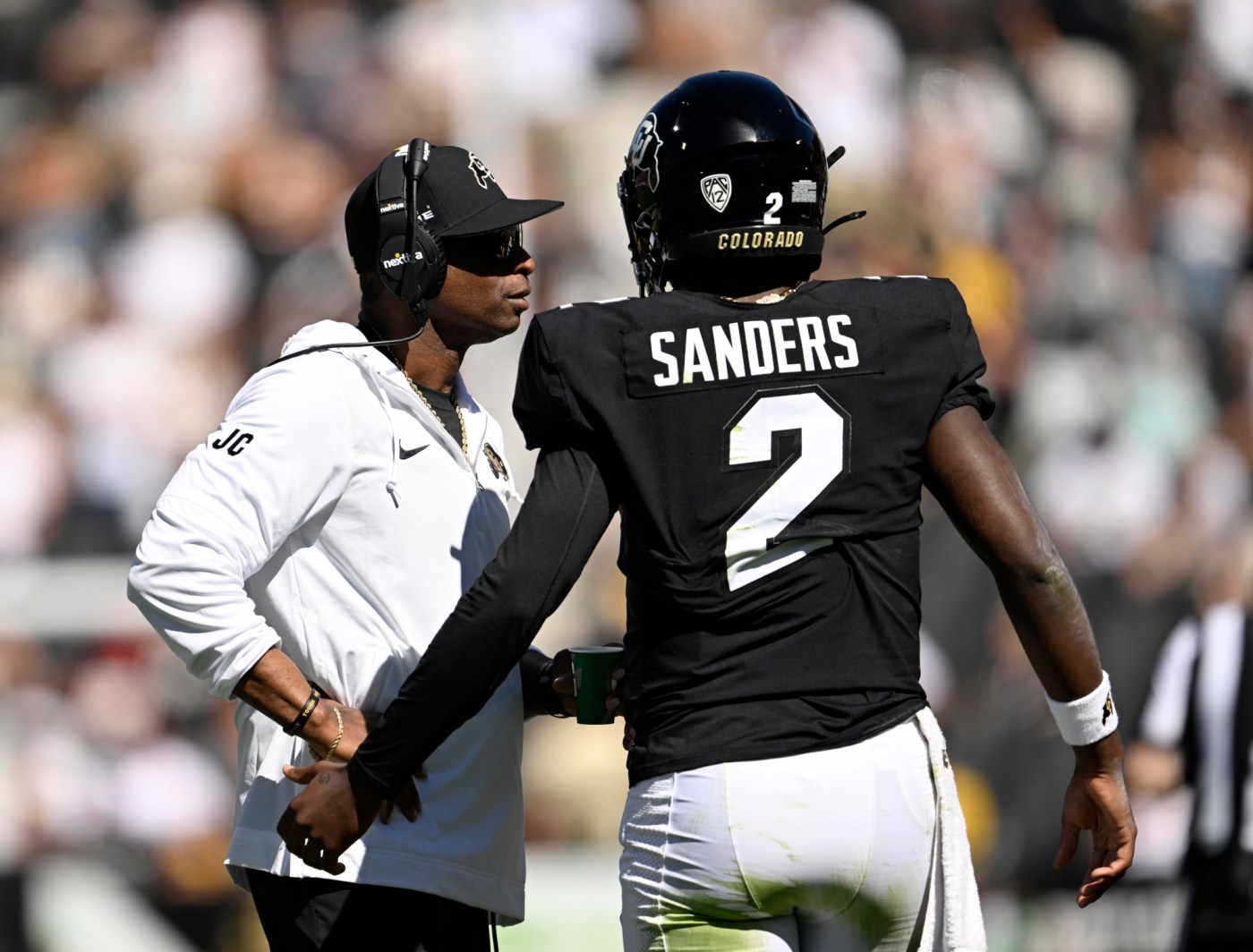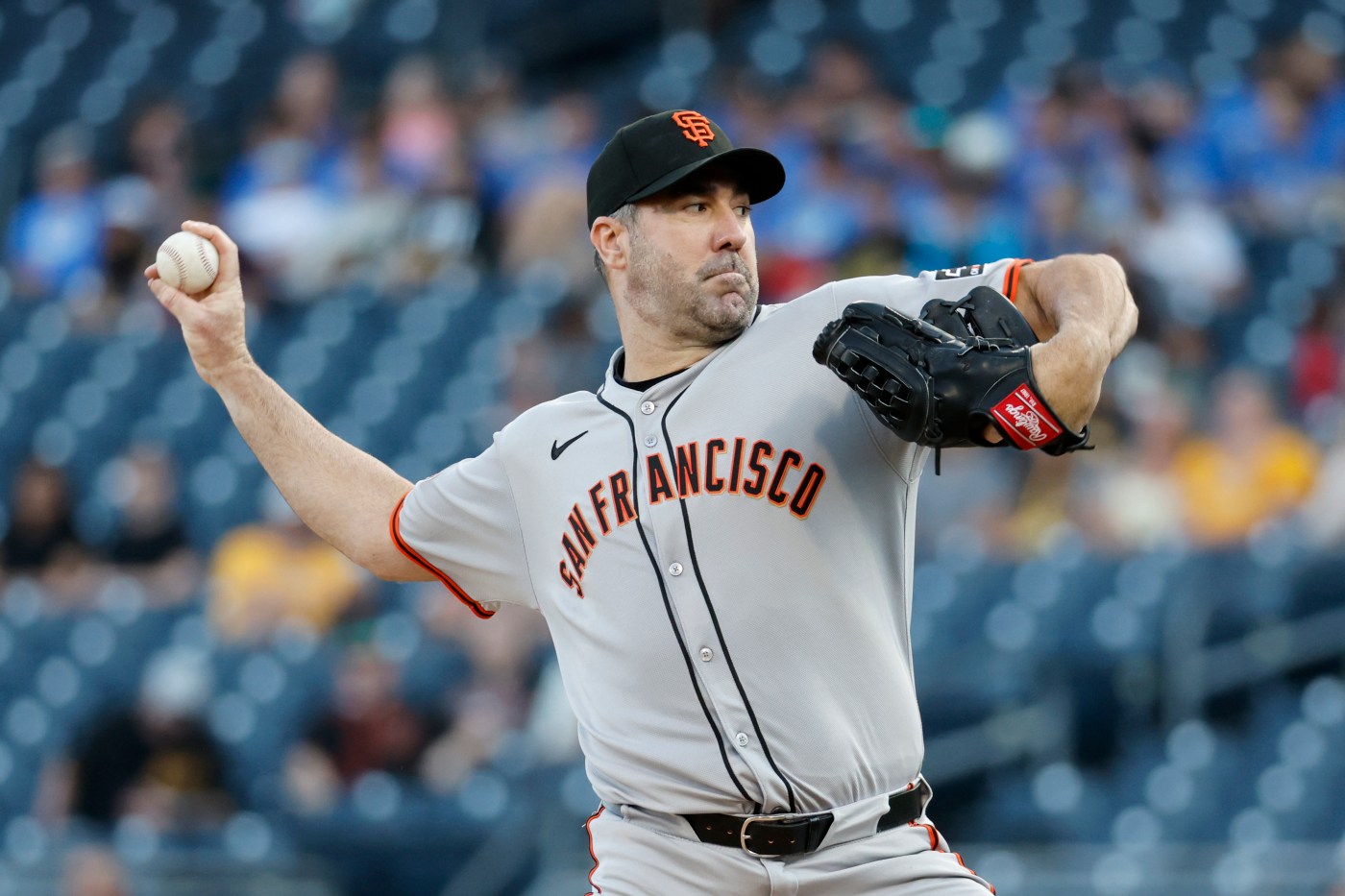The first week of the offseason — the first week with no football or basketball competition since the middle of August — was anything but quiet across the college sports landscape.
If you missed any news, worry not. The Hotline is here to help with a recap of five significant events impacting Pac-12 legacy schools.
1. Retirement controversy
Few developments generated more reaction this week than Colorado’s decision to retire the numbers of quarterback Shedeur Sanders and receiver/cornerback Travis Hunter at the spring game Saturday afternoon.
Hunter’s honor is justifiable in that he won the Heisman Trophy, but the move to retire Sanders’ number is a preposterous act of nepotism that has understandably outraged CU players and fans alike.
Sanders did not win a conference title, bowl game or major individual award during his two years in Boulder. Meanwhile, the Buffaloes have yet to retire former quarterback Darian Hagan’s number, and all he did was win a National Player of the Year award and the national championship.
But Sanders shares a last name with CU’s head coach.
“If his last name wasn’t Sanders, we wouldn’t have this discussion,” Deion Sanders explained during an attempt to justify the decision that unwittingly proved the point of so many critics.
Deion Sanders also noted that “every jersey I darn near played in is retired.”
That’s true, with the exception of every NFL team he played for.
Facts can be so darn pesky.
2. The cost of faking injuries
The NCAA on Wednesday announced a rule change aimed at curtailing the practice of feigning injuries to slow the opponent’s momentum.
According to the new rule, which was drafted by the Playing Rules Oversight Panel:
“If the player presents as injured after the ball is spotted by the officiating crew for the next play, that player’s team will be charged a timeout. If the team does not have any timeouts remaining, a 5-yard delay-of-game penalty will be assessed.”
The NCAA noted that faking injuries “has been a topic of discussion” in recent years. It doesn’t happen often — not nearly as often as controversial targeting or pass interference decisions — but when it does, the reaction is intense.
While most fans view Mississippi as the chief offender, teams from coast-to-coast have been accused of the practice over the years.
3. Transfer portal chaos
We couldn’t possibly capture the full impact of transfer portal comings and goings this week in football and men’s basketball, but a few moves are worth noting:
— UCLA is considered a frontrunner for former Tennessee quarterback Nico Iamaleava, who attempted to renegotiate a reported $2.4 million NIL deal with the Volunteers but overplayed his hand. Coach Josh Heupel cut Iamaleava loose, and the Southern California native could end up earning less money, especially given changes in cost-of-living.
— Cal lost starting tailback Jadyn Ott and backup Jaivian Thomas, along with tight end Jake Endries, following the conclusion of spring practice. Don’t blame NIL resources, or lack thereof, for the triple whammy. Instead, blame the departure of popular assistant Aristotle Thompson and the arrival of offensive coordinator Bryan Harsin, who is not known for being a players’ coach.
— Washington’s basketball program continued to upgrade its rotation as guard Wesley Yates III, who started his career with UW but spent the 2024-25 season at USC, announced he would return to Seattle. A few days later, the Huskies landed Indiana transfer Bryson Tucker. Add a collection of blue-chip high school recruits to the roster and coach Danny Sprinkle has secured a stellar class of newcomers that should allow UW to compete for an NCAA Tournament bid next season.
4. Courtroom fight
The Hotline is typically wary of diving deep into the weeds on legal matters — many fans have limited (or zero) interest. But an eligibility lawsuit in New Jersey is worth watching as Rutgers safety Jett Elad challenges the NCAA’s five-year competition window.
Related Articles
Mailbag: Schedule issues for the Big Ten’s western wing, Pac-12 media rights “hope,” Big Sky expansion, WSU and Cal roster moves
Recruiting: The Iamaleava impact, Washington State’s roster remake and Cal’s rough week
How Deion Sanders’ proposal helps solve one of college football’s biggest problems
Big 12 commissioner Brett Yormark doubles down on hoops as media strategy
NCAA chaos: Antitrust lawsuits, transfer portal could create nightmares
U.S. District Judge Zahid N. Quraishi said Wednesday that he will issue a ruling the week of April 21-25 on the case. If Elad is granted an injunction, the NCAA would be prevented from enforcing the five-year window.
In other words, athletes could take six years to play four seasons, or eight years to play four.
From there, it could be a matter of time before the four-year eligibility rule is challenged in court.
Elad seemingly has a good chance to win. Quraishi was hostile to the NCAA in previous cases, according to college sports legal expert Sam Ehrlich.
5. Basketball showdown
Arizona and Connecticut announced a home-and-home series that will begin next season in Storrs, with the return game in Tucson a year later. Both matchups are set for the middle of November.
The Wildcats are scheduled to play UCLA next season, as well.
And Alabama.
And Auburn.
It’s a fabulous lineup for the players and fans. But when Arizona’s non-conference schedule is combined with the rigorous Big 12 slate, we wonder if the Wildcats are erring on the side of aggression.
After all, they played 21 games last season that qualified as Quadrant I matchups — far more than the average played by teams that received No. 1, 2 and 3 seeds in the NCAAs.
Losses impact NCAA Tournament seeding, and every seed line matters.
*** Send suggestions, comments and tips (confidentiality guaranteed) to [email protected] or call 408-920-5716
*** Follow me on the social media platform X: @WilnerHotline





